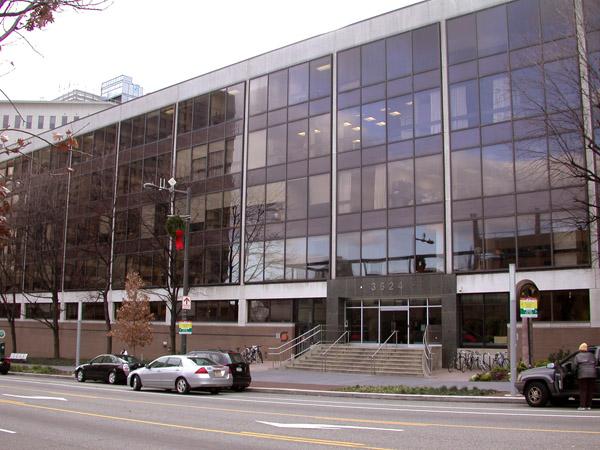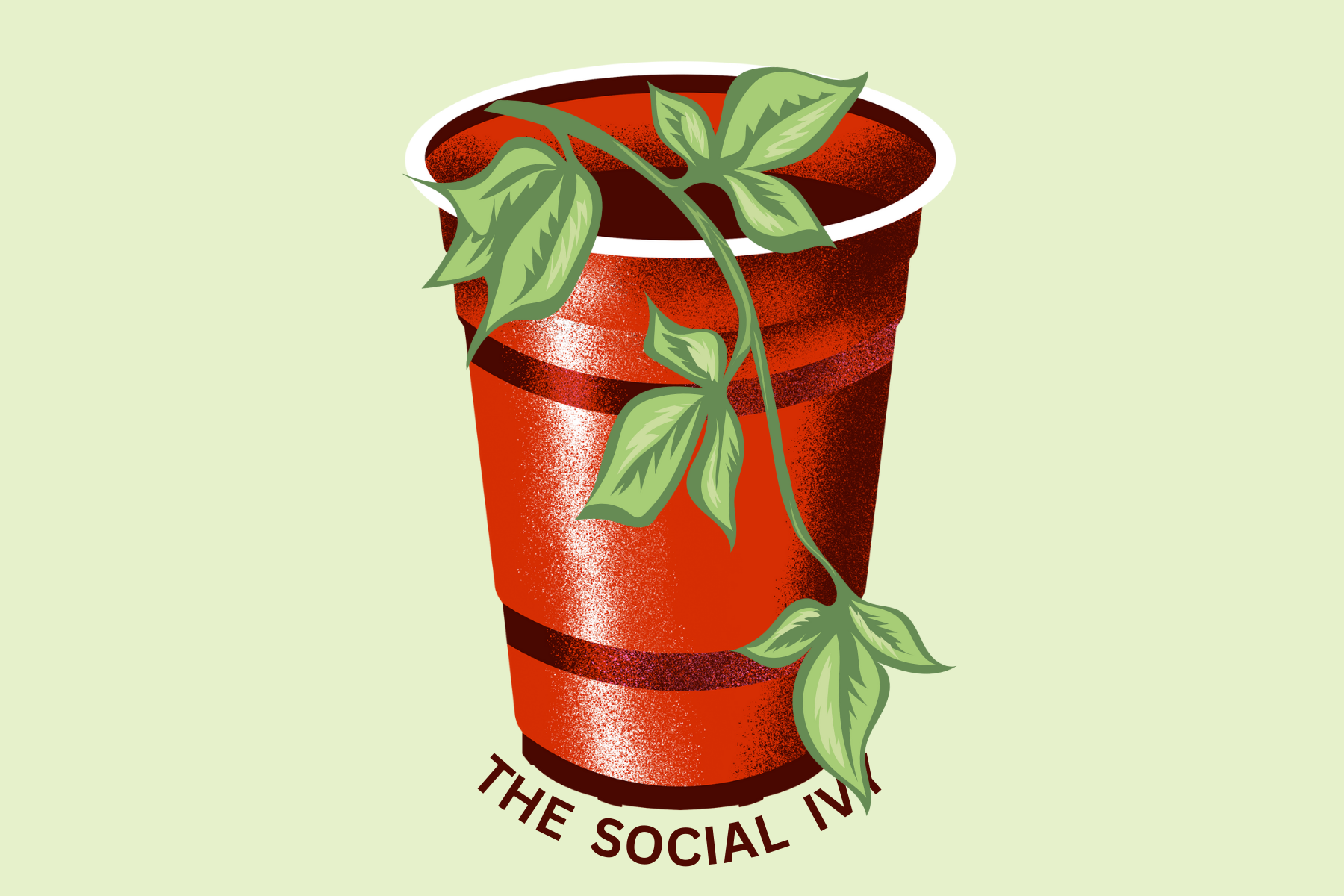You have more power to shift the culture than you think.
Penn Counseling and Psychological Services Building / Photo credit: Penn Facilities and Real Estate Services
By Juan Tejera
It is no secret that we are living in an epidemic of depression worldwide, but it seems that every year, there is a tragedy that strikes the Penn community, leaving us shaken. This is followed by the rote response of a generic “thoughts and prayers” email from the administration. Without fail there is subsequent outrage from the student body, calling for the University to make a change, citing a lack of mental health resources and the toxic, competitive culture cultivated by the school. Rarely, however, in this cycle, do we discuss what we can actually do to improve the conditions on campus.
Speaking from personal experience, Penn lacks mental health resources. Throughout my freshman year, I was having a tough time acclimating to Penn, so I scheduled an appointment with CAPS on October 28th. After what I thought was a productive session, I was told there were no openings available for a second session until December 2nd, showcasing the lack of support available. This essay, however, primarily emphasizes the aspects within our immediate control, rather than relying solely on institutional changes at Penn, which, while important, often take longer to enact. By focusing on the small, daily actions and decisions we can make as a community, we can start making positive changes today.
As an active member of the Penn community, I see firsthand how we all contribute to and are affected by this environment. While some may argue that organizational culture is determined solely by its leaders, I believe that every one of us plays a role. With this in mind, I’d like to share a few ways we can collectively initiate positive change at Penn.
1. Reframe your thinking from “I” to “We.”
As Dr. Martin Seligman, Penn professor and founder of the Positive Psychology discipline, has put it in the past, “Depression is a disorder of the ‘I,’ failing in your own eyes relative to your goals. In a society in which individualism is becoming rampant, more and more people believe that they are the center of the world. Such a belief system makes individual failure almost inconsolable.”
At Penn, the intense focus on pre-professionalism and the pressure for individual achievement can be overwhelming. We often measure our worth by external benchmarks: securing the most prestigious internships, achieving the highest grades, accumulating accolades, or gaining membership in elite organizations. However, emerging studies in the field of psychology suggest that these markers of success, while noteworthy, don’t encompass the full spectrum of what contributes to our mental well-being. Findings indicate that the quality of our relationships and the meaning we derive from our experiences play equally crucial roles in fostering a healthy mental state. This broader view helps to balance the emphasis on personal achievement with other essential aspects of life, such as connection and purpose, which are fundamental to our overall happiness and satisfaction.
So, what can we do? Make an attempt to reach out to friends who you don’t necessarily speak with every day. Catch up with them and check in on what is going on in their lives. When you meet up, try not to chat about just school and work. Penn students have profoundly diverse interests and just want someone to talk about them with! Engaging in genuine, enthusiastic conversations about hobbies and passions can be incredibly fulfilling and beneficial for our mental health. It’s about sharing, listening, and genuinely caring about the exchange – much more rewarding than any coffee chat!
Reducing loneliness and improving mental health can be done not only by increasing interpersonal connections but also by finding community. Religious, personal, and cultural values have shown to be a source of meaning and increased happiness. There are clubs and organizations here at Penn that can help you cultivate that connection with your faith or values. By focusing on the bigger picture, we can gain perspective on the things that matter more.
2. Practice gratitude and savor your experiences.
It is so easy to get caught up in the fast-paced environment that we’re in. Sometimes we’re just on autopilot and don’t even realize it. One second you’re waking up late for your 10:15, and the next you’re having dinner, studying, maybe going out, and going right back to bed. Then, we do it all over again the next day. That definitely sounds awful if you don’t take a moment during your days to reflect on all the good things we take for granted. Research has shown that gratitude interventions can improve your mental health and that of those to whom you express your gratitude. Through gratitude, we can enhance our cognitive abilities, strengthen our relationships, and enrich our personal well-being.
What can we do? There are a lot of fun exercises you can do with this one. To start off with the simplest ones, express to your friends that you’re happy to see them or that you’re grateful for them when you interact with them. I make it a point to acknowledge my friends with a heartfelt “it’s great to see you” or “I appreciate you” during our interactions. This might include sending a brief message of thanks to someone I’ve had a meaningful conversation with during the day. These small gestures are my way of showing genuine appreciation and care for the people in my life.
One popular gratitude intervention is the “three good things” exercise; simply put, it’s recognizing three good things that happened to you in a day. Practicing this from time to time
can help increase your awareness of the good things that happen around you and your perception of the positive feelings that result.. Sidechat would be an incredible app if we started sharing good stuff going on around campus and things that bring us joy instead of hate, gossip, and complaints about our “unfair” professors. Yeah, maybe it wouldn’t be as entertaining, but it would definitely be a catalyst for positive change in our culture. We already know that ruminating can only exacerbate those negative emotions, yet we continue to do it. If there are already so many people on Sidechat that want to change this culture, why not start by changing the way we talk about our lives and Penn in general on those channels?
3. Find something to look forward to.
This one is more at an individual level because it is important to look after your own desires and enjoy your own things. With that said, we often struggle to see the light at the end of the tunnel
because of the fact that we can’t find things that make us excited. We can get caught up in our routines, but if there isn’t something in that routine that makes us happy even to the smallest degree like going to the gym, talking with your roommates, watching a TV show, or planning something for the weekend, it becomes hard to go through a whole academic term without feeling burned out all the time.
What can we do? Break that routine every now and then, or add something fruitful to it if you
gravitate more towards having structure. Ask yourself, “what are things that bring me comfort or joy?” Activities that give you intrinsic motivation tend to give you a greater sense of fulfillment. Learn a new hobby. Last year, I started learning the ukulele and one of my friends started crocheting. I think we both started doing our respective activities at lower points in our lives and it’s helped us both stay engaged and afloat. Go to Smoke’s on Wednesday—you can start studying for that quiz or doing that homework tomorrow. At the end of the day, you’re more likely to remember a night out than some score on a quiz worth 5% of your grade. I’m not encouraging you to drop your academics to go out, but find balance. The Social Ivy can have its perks but only if we take advantage of them.
4. Cultivate positive cultures in your smaller communities.
This one is especially for leaders in pre-professional clubs, Greek life, and other exclusive clubs on campus. There have been countless cries but little progress in the fight to end toxic club exclusivity at Penn. Having been the President of a fraternity for the last two years, the process of rush is one that has been disheartening at times. To an extent, you have to be exclusive because you can’t sustain having a huge new member class or organization, but I know that we can be better about how we navigate some of the “cuts” along the way.
The real question for Penn club leaders should be: “Are we being exclusive for the sake of exclusivity, or because we truly can’t have more people in our organization that can benefit from our community without harming the experience for those who are in it?” I think that is a difficult question to answer and navigate, but I do believe that there are clubs that could pivot to a hybrid model with GBM/informational structure while also giving members an opportunity to have more exclusive benefits later on.
What can we do? First and foremost, treat every student that interacts with your organization with the kindness and respect that anyone deserves. You have the privilege of being a part of one (or multiple) of these communities and someone is taking an interest in your organization since you were once in their shoes and they need a support system that can offer guidance and friendship.
Have some empathy when you are making decisions. If you’re cutting someone that has been around for a long time, take the time to give them a call and thank them for their interest and let them know that you appreciate them, but that it just wasn’t a fit.
Ask yourself those important questions centered around how you can make your communities healthier and more positive. In what areas can your organization improve to create this positive environment? How can you be a better leader? These are the tougher, more self-reflective questions, but they are also necessary.
It is important to recognize that while the strategies and insights shared here aim to foster a healthier and more supportive community at Penn, they may not universally apply to all individuals or situations. It’s essential to approach these suggestions with an understanding that they are not intended as a substitute for professional diagnosis, treatment, cure, or prevention of any medical or psychological condition. Each person’s journey towards mental well-being is unique, and what proves beneficial for one may not be applicable to another. Furthermore, acknowledging the limitations of peer support and self-guided improvement is crucial. The importance of seeking professional guidance cannot be overstated, particularly in instances where mental health concerns are more profound.
By reframing our perspective from a singular focus on personal achievement to a broader view that values connection, community, and mutual support, we can begin to break the barriers to mental well-being that the Penn community faces. Let this discourse serve not as a definitive guide, but as a starting point for deeper exploration and conversation about mental health at Penn. It’s through our shared efforts and ongoing dialogue that we can hope to effect meaningful change, making our community a place where everyone feels valued, supported, and empowered to seek help when needed.
Juan Ignacio Tejera is a junior in the College studying Economics with minors in Consumer Psychology and Data Science, from Caracas, Venezuela, and Miami, FL. His email is juanchi@sas.upenn.edu.




